You are here
New Releases

GetIN Mobile App: For community health workers and midwives to register and follow up pregnant women to attend antenatal care
GetIN is a community referral system (mobile and web) to support outreach pregnant women in rural communities in
Uganda.It seeks to strengthen the current community Health Follow-up system and have a positive impact on the maternal
health in Uganda.
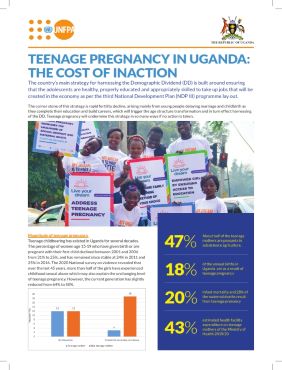
Teenage Pregnancy in Uganda: The Cost of Inaction
If no action is taken to reduce childhood sexual abuse then teenage pregnancy will continue with 50% of teenage girls at risk each year, about 64% of teenage mothers will not complete primary education level; about 60% of teenage mothers will end up in peasant agriculture work, and annually, more than UGX. 645 billion (181.8 Million USD) will be spent by Government of Uganda on healthcare for teen mothers and education of their children.
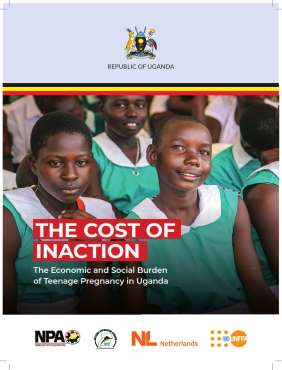
The Cost of Inaction: The Economic and Social Burden of Teenage Pregnancy in Uganda
Teenage pregnancy comes with social and economic costs that are born by a range of institutions starting with individuals and households at the micro level to macro level and impacts on national development in varied ways. The choice of inaction is therefore not an alternative for Uganda on her journey to harnessing demographic dividend.
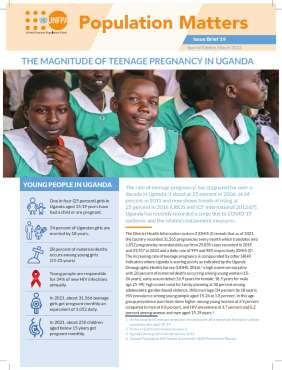
The Magnitude of Teenage Pregnancy in Uganda
The Uganda District Health Information system-2 (DHIS-2) reveals that as of 2021, the country recorded 31,565 pregnancies every month which translates into 1,052 pregnancies recorded daily up from 29,835 cases recorded in 2019 and 29,557 in 2020 and a daily rate of 994 and 985 respectively (DHIS-2)2. In 2021, about 31,566 teenage girls got pregnant monthly an equivalent of 1,052 daily and about 250 children aged below 15 years got pregnant monthly.
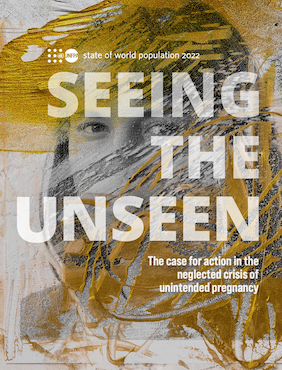
Seeing the Unseen
Half. That’s the share of all pregnancies that are unintended. Nothing is more fundamental to bodily autonomy than the ability to decide whether or not to become pregnant. Yet for too many, the most life-altering reproductive choice is no choice at all. Women are more likely to experience an unintended pregnancy when they have fewer choices and less power.
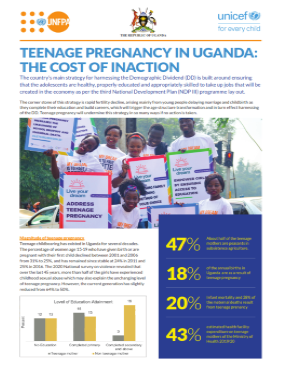
TEENAGE PREGNANCY IN UGANDA: THE COST OF INACTION
If no action is taken to end teenage pregnancy, about 64% of teenage mothers will not complete primary education level; 60% of teenage mothers will end up in peasant agriculture work and annually more than UGX. 645 billion (181.8 Million USD) will be spent by Government of Uganda on healthcare for teen mothers and education of their children.
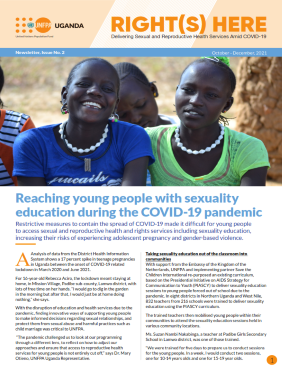
Right(s) Here: Delivering Sexual and Reproductive Health Services Amid COVID-19. Issue No.2
We reflect on the strides we have made for women, girls, and young people to ensure delivery of an integrated package of reproductive health rights. Amid economic pressures due to COVID-19 pandemic, and with health systems overstretched, UNFPA continued to work with partners to ensure that sexual and reproductive health services do not get sidelined. We are grateful to our donors, who have supported the work of UNFPA to ensure that we close the gaps critical to help avoid higher rates of teenage pregnancies, maternal deaths, unintended pregnancies, unsafe abortions, HIV and sexually transmitted infections.
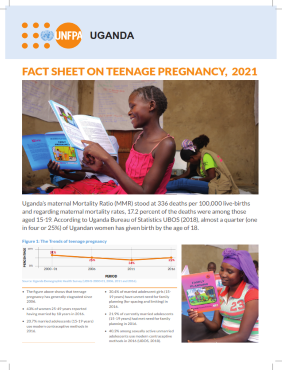
FACT SHEET ON TEENAGE PREGNANCY, 2021
Uganda’s maternal Mortality Ratio (MMR) stood at 336 deaths per 100,000 live-births and regarding maternal mortality rates, 17.2 percent of the deaths were among those
aged 15-19. According to Uganda Bureau of Statistics UBOS (2018), almost a quarter (one in four or 25%) of Ugandan women has given birth by the age of 18.
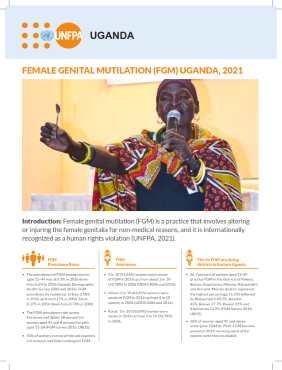
FEMALE GENITAL MUTILATION UGANDA, 2021
Female genital mutilation (FGM) is a practice that involves altering or injuring the female genitalia for non-medical reasons, and it is internationally recognized as a human rights violation.
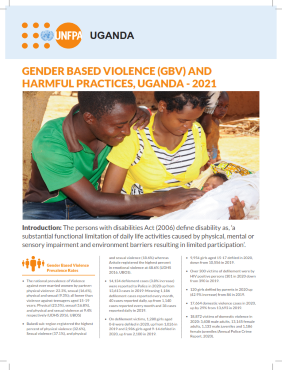
GENDER BASED VIOLENCE AND HARMFUL PRACTICES, UGANDA - 2021
In 2020, the Uganda Judiciary with the Justice Law and Order Sector with the support of UNFPA organized Sexual Gender Based Violence (SGBV) court sessions held out of courts in 14 districts Overall 629 in 711 cause-listed cases were successfully completed and 82 cases were re-schedule